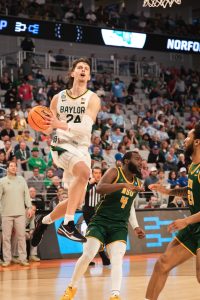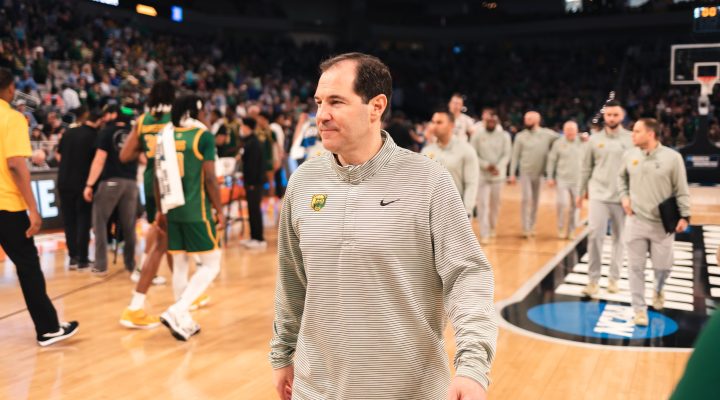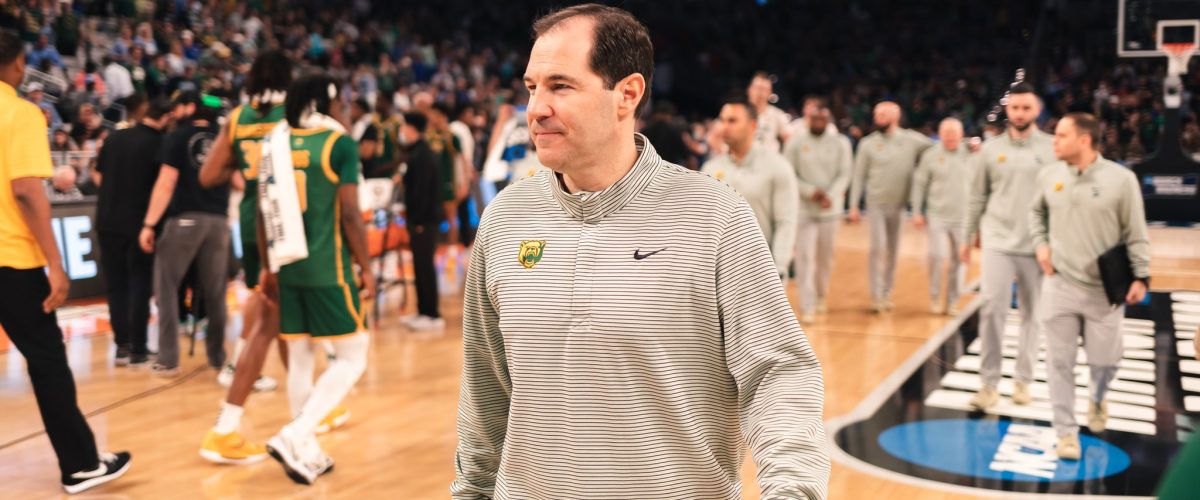When Scott Drew became head coach of Baylor University’s men’s basketball team in 2003, he took on arguably the worst job in all of college sports. Almost two decades later, he looks back on the Bears’ road to recovery and sees abundant blessings.
But back then, a shroud of scandal hovered over the disgraced basketball program. A Baylor player, Carlton Dotson, had murdered teammate Patrick Dennehy. Trying to protect himself, head coach Dave Bliss had lied about illicit payments to players and falsely claimed Dennehy had been dealing drugs.
Baylor released its men’s basketball players from their personal obligations to the team, and most transferred to other schools. The university placed itself on probation and imposed its own sanctions. Then the NCAA imposed additional sanctions and extended probati0n to 2010.
But Drew saw the situation not only as a challenge but as an opportunity for leadership.
“You’re always praying that God leads you to where he wants you. I felt, through prayer, I was led to go to Baylor.”
“You’re always praying that God leads you to where he wants you. I felt, through prayer, I was led to go to Baylor,” he recalled. “My dad and I were reading through the book of Job at the time, which prepared me to answer the call to go to Baylor.
“Those first couple of years were tough when you had between five and seven scholarship guys, and you’re competing with walk-ons against the McDonald’s All-Americans,” he said. The NCAA allows 13 Division I men’s basketball scholarships. So, Drew filled out the roster with Baylor students who had not been offered scholarships by other Division I schools but played for the love of the game.

(Photo/Baylor Lariat Facebook)
“Those first couple years allowed us to get to the next couple years, which allowed us to get to the championship. God gets all the glory,” Drew said. Indeed, Baylor moved from an 8-12 record his first year, 2003-04, to 21-11 in 2007-08, to 28-2 and the national championship in 2020-21.
For Drew, coming to Baylor was hardly a right-time, right-place scenario. But it seemed to be God’s timing. It’s a story he tells in his book The Road to Joy, published this spring. He sat down to write on the advice of his father, Homer Drew, himself a successful coach who realized people will want to learn about the road to recovery, which the Bears took from shame to championship.
Drew never wanted to write the book. “However, I talked to several people, and they said, ‘You know, you should write a book about what the program’s been built on,’” he reported.
He tried to describe the Bears’ recovery process while making sure to reflect its basic simplicity. “I like using the K-I-S-S Theory—‘keep it simple, stupid!’” he explained. “I picked it up from Clemson (football) coach Dabo Sweeney. He picked it up from (former NFL coach) Tony Dungy.”
That simplicity comes from clearly and straightforwardly following Jesus, he insists.
“… If you have the key priorities in life — Jesus, others, yourself — it’s the greatest commandment.”
“What’s the greatest commandment of the law?” he asked. “Love your God with all your heart, soul, and mind and love your neighbor as yourself. If you have the key priorities in life — Jesus, others, yourself — it’s the greatest commandment.”
And “neighbor” apparently includes teammates. “You try and always get people to buy into playing for each other and playing as a team,” he said. “We’ve always been a Christ-centered program, but it’s his platform.”
Drew hopes people see joy in the process when God takes a team or individual down the road of recovery, just like he believes God did with the Baylor basketball team.
“What makes a good coach is just what makes a good leader, and that’s being a servant leader.”
A good coach has a specific responsibility, he said: “Sometimes the head coach does everything on the court, and he’s a micromanager. And then there are other coaches that do a great job diversifying and sharing responsibilities and responses. But what makes a good coach is just what makes a good leader, and that’s being a servant leader.”

(Photo/Baylor Lariat Facebook)
Drew acknowledges college athletics and basketball — just like the world at large — are changing constantly.
“Since 2008, only Baylor and Kansas in the Power Five have won 18 or more games” every year, he said. “We’ve been the No. 1 seed three times in a row. Only Kansas, Baylor and Gonzaga have done that.
“God’s really blessed our program, and as the world changes and things change in athletics, it’s a constant struggle to find ways to make sure that you’re reinventing your craft and getting better at what you do, because at the end of the day the world changes. You’ve got to change with it.”
All change aside, a vital key is to focus on what remains constantly important, Drew stresses.
“As long as God gives us this platform to influence the young people we’re able to coach, we’re blessed,” he said. “We prepare champions for life. It’s academic success, it’s character formation, it’s athletic success, but it’s also spiritual growth.
“When we get to heaven, hopefully we see many, if not all, of our former players.”


